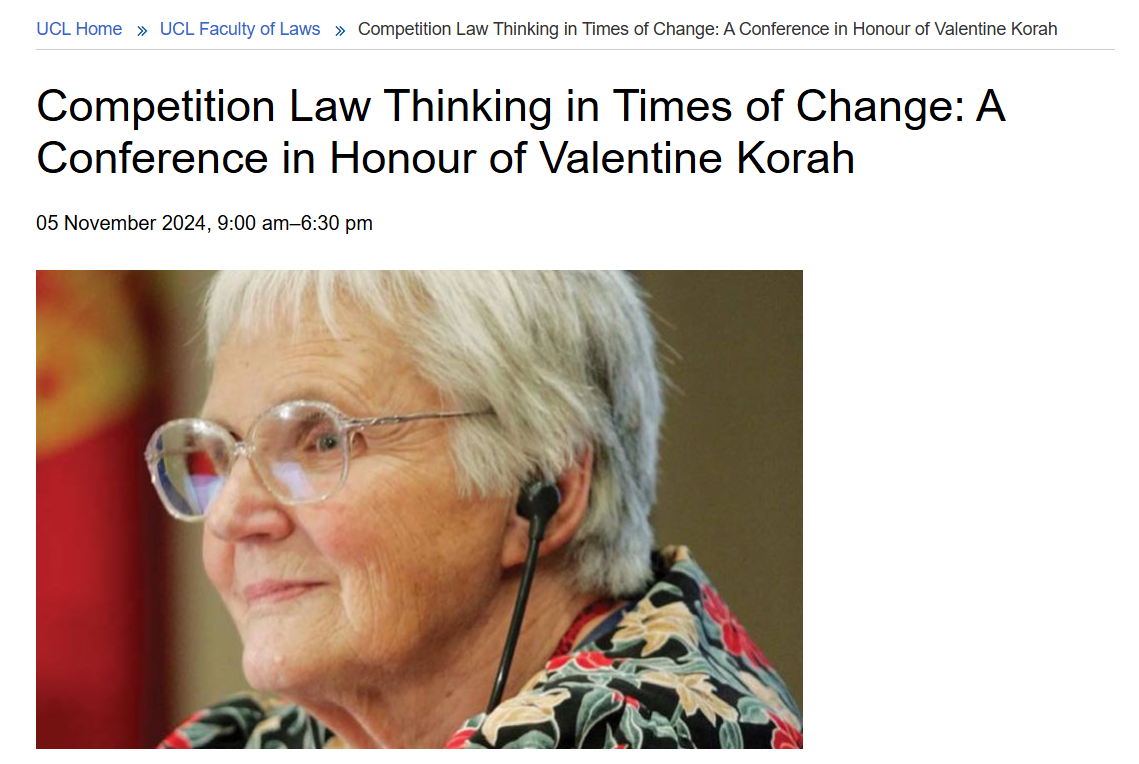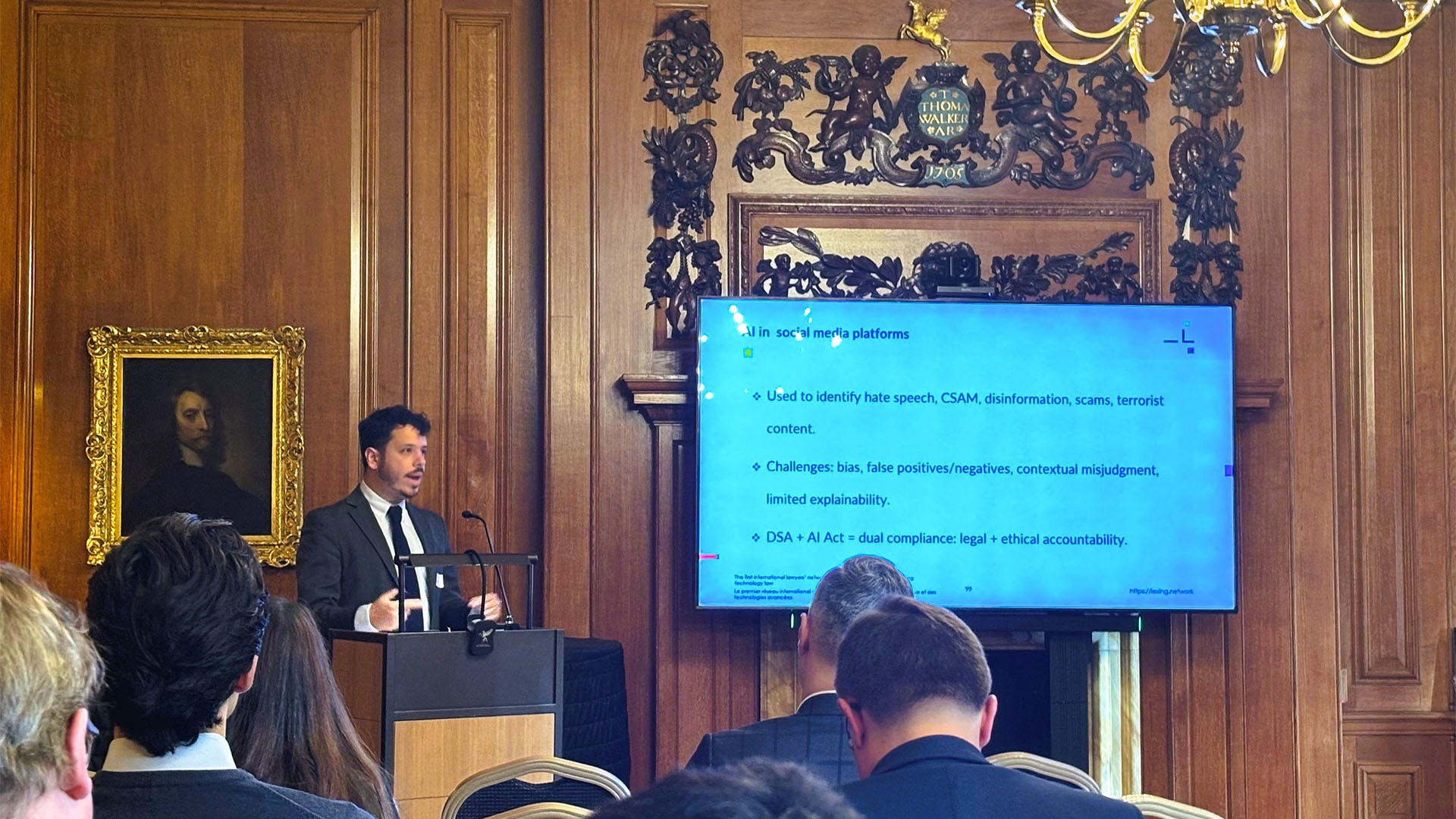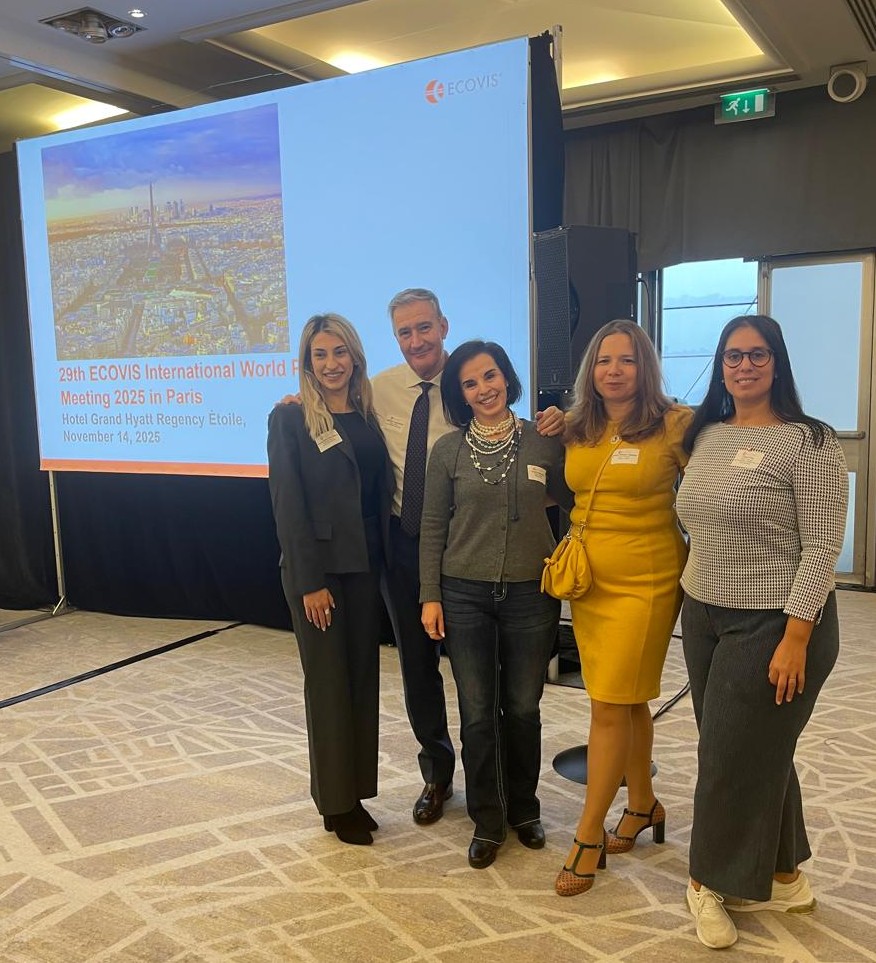“Congratulations to Professor Ioannis Lianos (UCL) and his colleagues for honouring Val’s memory and organizing this thought-provoking event and looking to repeat it in the future. It would be inappropriate to mention some speakers and participants because I would have to leave out the very many other distinguished academics and practitioners who honoured Val by attending this conference and contributing their thoughts to the discussions.
Introducing rationality through the use of economics in antitrust was indeed revolutionary in the 1980s. It was based on the best thinking of the times, the neoclassical economic model and Chicago School economics. Indeed, it seems to me to be appropriate that Val developed this thinking at UCL, the university founded by Jeremy Bentham, a founder of consequentialism. All Val was really saying was that deontology and formalism (Kantianism) is fine in the world of principles, but in the real world we have to think about the consequences of our actions. In her days, the discussion was formalistic, legal rules were applied in a social and economic void. Val wanted the courts and the competition authorities to think about consequences, and indeed to do so rationally, on the basis of the best economics of the day.
Today the neoclassical model and the Chicago School economics are both being informed by new thinking and some of their consequences are being criticized. Behavioural psychology has resoundingly proven that consumers are not rational nor fully informed and do change preferences; behavioral economics have proven that neither consumers nor economic agents always act efficiently and optimally and markets can be inefficient; modern technological advances, namely social media and AI tend to predict and form consumer preferences (in which order, I don’t know) thus denying the consumer the central role afforded by the neoclassical model; the neoclassical model itself is being criticized for negating the role of value(s) in favour of price, reducing the citizen to a mere consumer; finally, the Chicago School of free markets is criticized for ignoring the political and social impact of concentration of economic power. There are considerations other than efficiency and optimization that must be taken into account, such as climate change and sustainability, concentration of economic power and political power and democracy, freedom of choice and transparency and many, many others.
This should not be an exercise leading to removing the foundation of economic rationality from antitrust. It should be a process seeking to enrich antitrust with the findings of new disciplines and experience, making our judgments more informed and our decisions more positively impactful. We will never get it absolutely right, but at least we can improve the quality of our judgments and decisions.”
More information on the conference is available here.




